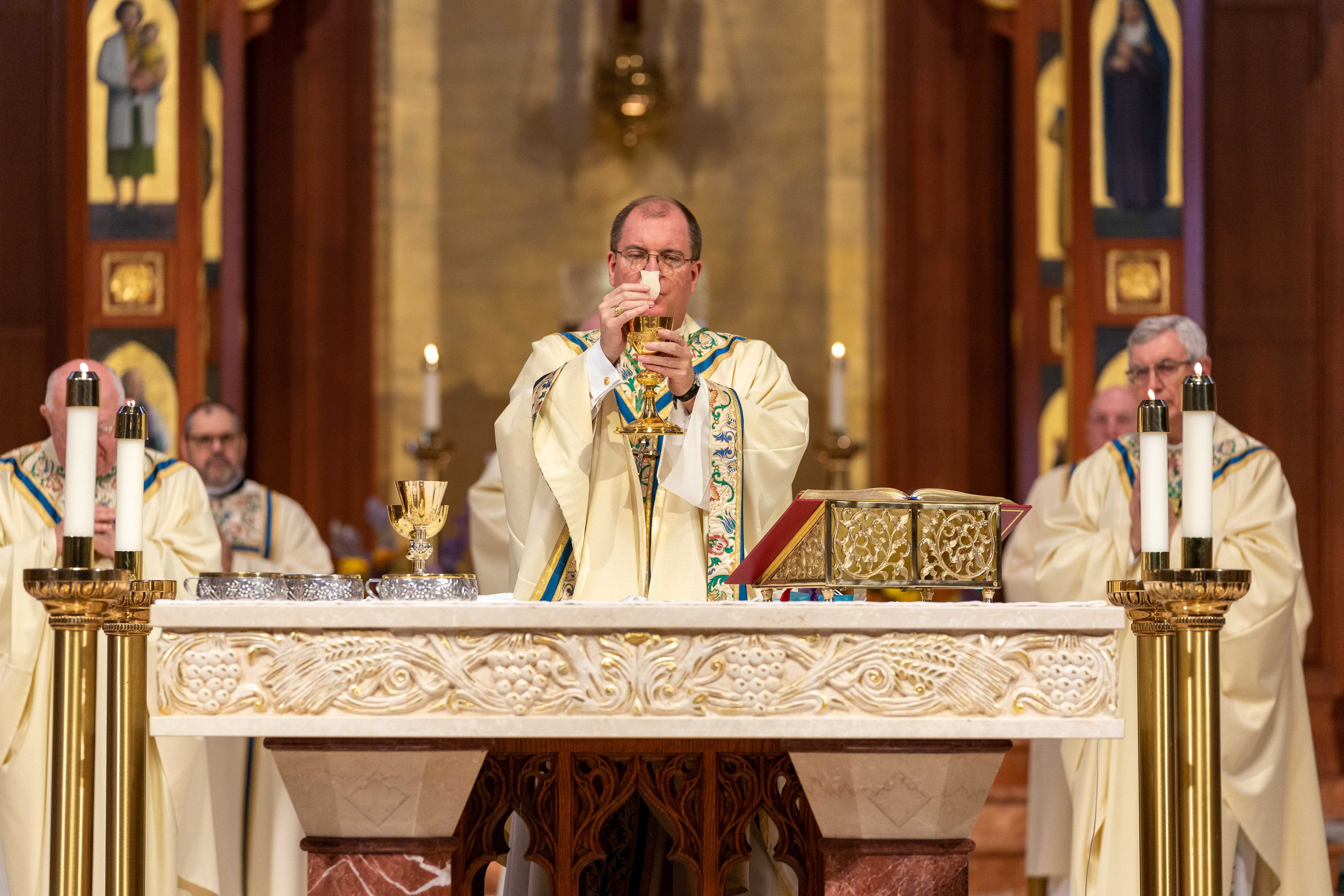Extraordinary Ministers of Holy Communion
The Extraordinary Ministers of Holy Communion fill a great need in helping to distribute Holy Communion at Mass on Sunday and weekdays. The ministry of extraordinary ministers is open to both religious and lay men and women over the age of eighteen. These men and women bring Communion to the sick and homebound offering spiritual nourishment and comfort during times of illness and infirmity. They also visit nursing homes, health-related facilities and hospitals within the parish providing a much needed service to those who cannot come to church. Extraordinary Ministers of Holy Communion receive intensive diocesan training and are commissioned at St. Agnes Cathedral in a special ceremony.

